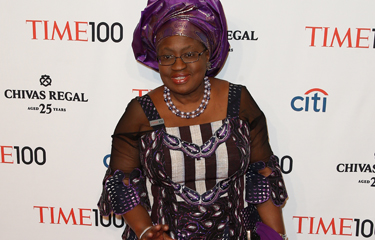The head of the World Trade Organization (WTO) has suggested difficult talks on ending harmful fishery subsidies should be concluded by July.
In an effort to inject some urgency to the talks, WTO Director-General Ngozi Okonjo-Iweala pleaded with negotiators in Geneva, Switzerland, to maintain a sense of urgency.
“Concluding these negotiations is a top priority for this organization, not only for the fisheries, but also for the WTO system,” Okonjo-Iweala said in a 12 April address to the heads of delegations. “We simply cannot afford to fail here,” she said.
The delegation heads recently met for 27 hours of face-to-face talks to attempt to overcome a logjam on several contentious issues, including how to designate opt-outs for artisanal and developing country fisheries and deciding which authority will determine which stocks are overfished. Separately, Okonjo-Iweala discussed the issue of fishing subsidies with U.S. Commerce Secretary Gina Raimondo, according to the WTO.
“We are closer than ever to an agreement, but I know we also have many issues that still put some of us far apart,” Okonjo-Iweala said. “But my feeling is that only now we have reached a considerable degree of maturity in the negotiations, and we should do what it takes to close it.”
However, a leading expert on the talks and subsidy regimes told SeafoodSource he is pessimistic about the negotiating parties being able to overcome their outstanding issues.
Developing-nation negotiators need to realize that carve-outs ultimately won’t benefit their countries, said Rashid Sumalia, a fisheries economist at the Institute for the Oceans and Fisheries at the University of British Columbia. He said the cost of continuing subsidies is one that could be better used on other economic development programs.
“We don’t have to take the money out of communities,” Sumalia said. “If stocks are overfished, take away all the harmful subsidies that would undermine their rebuilding.”
Describing “crazy politicking” by delegations at the WTO, Sumalia said reduced subsidies in all countries will in turn lead to “more fishing, which the market would support.”
While pessimistic about the current state of the talks, Sumalia retains a “glimmer of hope” because of Okonjo-Iweala’s leadership.
“She has shown she is standing up for this [deal],” Sumalia said.
He cited as a reference point Okonjo-Iweala’s role in cutting fuel subsidies in Nigeria while serving as that country’s finance minister.
Photo courtesy of Debby Wong/Shutterstock







